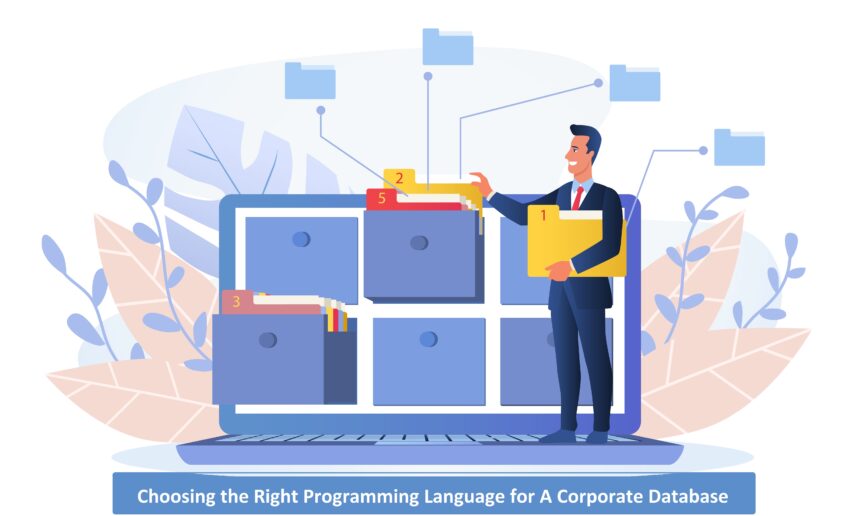For corporations, creating a reliable and easy-to-use corporate database is a vital part of developing and maintaining a smoothly-running operation. From keeping customer information private to ensuring that financial data is safe and secure, corporate databases can play an essential role in a corporation’s ability to succeed.
Unfortunately, building a corporate database from scratch can be tricky if you don’t know where to start. The in-depth and highly technical nature of the field are some of the main reasons coder salaries are lucrative and enviable.
Choosing the right programming language is an important decision that will have a dramatic effect on how the corporate database functions. Thankfully, having some guidance around which languages are the best to use for this purpose can make the process easy to start and see through to the end.
Understanding Your Options
Before making a decision, it’s essential that one is aware of the options available to them. Having a clear grasp of these options and what they offer will make the task of choosing a programming language more accessible to anyone in the process of creating a corporate database. Here are some of the most popular choices for creating a corporate database.
Structured Query Language (SQL)
When it comes to industry standards for creating corporate databases, SQL is one of the most popular programming languages utilized by organizations. In fact, SQL’s simplicity coupled with its ability to analyze data thoroughly has also made it a favorite programming language among data scientists looking to compare and analyze various data sets.
SQL is a query language, which means it retrieves or changes information from a database through queries. Basically, this means that the user poses a query — either a select to retrieve a piece of information or an action to alter a piece of information — and then the action is performed.
SQL uses a straightforward system of data classification with tables and columns that make it relatively easy for people to navigate and use. This ease and well-organized structure are some of the main reasons that SQL is a favorite of corporations everywhere when it comes to crafting robust and accessible corporate databases.
Python
Python is a high-level, general-purpose programming language that has a wide variety of uses and applications. Given Python’s versatility, it can be a great language to use when dealing with databases and data analysis.
Given the wide use and many applications of Python, there are many systems that are compatible with Python that can make specific actions easier to do consistently. In particular, there are many plugins and software that can be used with Python to automate functions and coding processes, thereby streamlining tasks, and making processes more efficient.
For larger corporations who want a robust database that has many automated functions, utilizing Python is a great option. By taking advantage of this adaptable language, corporations can craft unique and highly-functional databases that are able to perform a wide range of functions.
R Programming Language
The R programming language is one that was created specifically for those in the field of data science to store and analyze data. While it was initially meant for data scientists, corporations who plan on doing thorough analyses on a consistent basis can definitely benefit from integrating the R programming language into their databases.
One of the biggest advantages of using R is the ability to design new functions with ease. This accessibility when it comes to crafting new functions gives corporations the ability to create database functions unique to their organizational needs.
While R is an amazing programming language when it comes to analyzing data, it does lack the versatility of general-purpose programming languages such as Python. This being the case, R may not be the right programming language for every organization’s corporate database. However, corporations in need of database functions that are highly technical and unique to their company can find what they are looking for with the R programming language.
Creating a Robust and Functional Database Language
When it comes to crafting a corporate database, there is a plethora of options that organizations can utilize to make their vision come to life. From the simplicity of SQL to the versatility of Python to the analysis of R, choosing the right programming language will ultimately depend on a corporation’s individual needs and desires.
While the process of choosing a programming language for a corporate database may seem intimidating at first, taking some time to determine what one’s organization needs and which languages have the right functionality will make the process easier and more straightforward.

